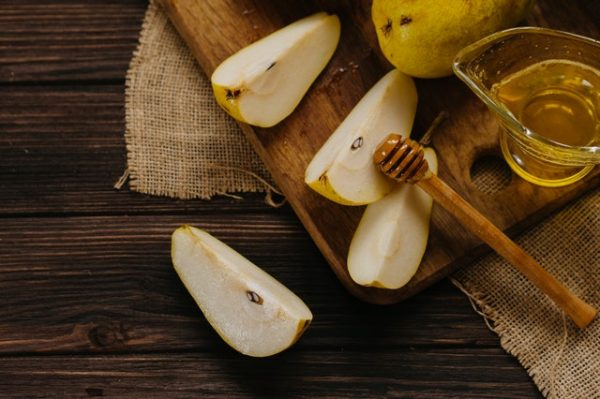Sugar. It’s everywhere – lurking in processed foods, hiding in seemingly healthy snacks, and calling our name from tempting desserts. While a moderate amount of natural sugar can be part of a balanced diet, excessive sugar consumption is a major concern. Refined sugar not only contributes to weight gain and a variety of health problems, but it can also wreak havoc on your blood sugar levels, leaving you feeling sluggish, and cranky, and reaching for even more sugar. This informative guide explores practical tips to limit sugar intake, reset your appetite, and achieve healthy blood sugar control, paving the way for a healthier, more energized you.
The Bitter Truth About Sugar: Unveiling the Impact on Your Health
Consuming excessive amounts of sugar, particularly refined sugar found in processed foods and added sugars, can have a detrimental impact on your health:
- Blood Sugar Rollercoaster: Sugar causes blood sugar levels to spike rapidly, followed by a sharp crash. This cycle can lead to fatigue, irritability, and sugar cravings. Over time, it can contribute to insulin resistance, a precursor to type 2 diabetes.
- Weight Gain: Excess sugar consumption translates to excess calorie intake, promoting weight gain and obesity.
- Inflammation: Sugar can contribute to chronic inflammation, a risk factor for various health problems, including heart disease and certain cancers.
- Dental Problems: Sugar feeds the harmful bacteria in your mouth, leading to tooth decay and cavities.
Breaking the Cycle: Understanding Sugar Addiction and Cravings
- Sugar can be highly addictive. When you consume sugar, your brain releases dopamine, a neurotransmitter associated with pleasure and reward. This triggers cravings, making it difficult to resist sugary treats.
- The Power of Habit: Our taste preferences and dietary habits are shaped by repeated behaviours. Regular sugar consumption can lead to conditioned cravings, making you crave sugar even when your body doesn’t necessarily need it.
Taming the Tiger: Practical Strategies to Reduce Sugar Intake
The good news is that you can curb your sugar cravings and reset your taste buds to appreciate more natural sweetness. Here are some effective strategies:
- Read Food Labels: Become a label-reading detective. Be mindful of added sugars lurking in seemingly healthy products like yogurt, salad dressings, and processed sauces. Look for products with low or no added sugar.
- Embrace Whole Foods: Focus on incorporating whole, unprocessed foods like fruits, vegetables, whole grains, and lean protein into your diet. These foods are naturally filling and provide sustained energy.
- Sweeten Naturally: Opt for natural sweeteners like fruits, dates, or a sprinkle of stevia to add sweetness to your meals and drinks.
- Start Your Day with Protein: Prioritize protein for breakfast, such as eggs, Greek yogurt, or nuts. Protein helps regulate appetite hormones and keeps you feeling fuller for longer, reducing cravings throughout the day.
- Plan Your Meals and Snacks: Don’t leave yourself feeling famished, which can lead to impulsive sugary choices. Plan healthy meals and snacks to avoid unhealthy temptations.
- Hydration is Key: Dehydration can sometimes mimic hunger pangs. Drinking plenty of water throughout the day can help curb cravings and promote feelings of fullness.
- Manage Stress: Stress can trigger sugar cravings. Practice stress-management techniques like yoga, meditation, or deep breathing to help regulate your emotional eating patterns.
- Get Enough Sleep: Chronic sleep deprivation can disrupt hormones that regulate appetite and blood sugar control. Aim for 7-8 hours of quality sleep each night.
Detoxing from Sugar: What to Expect During the Transition
When you initially limit sugar intake, you may experience withdrawal symptoms like headaches, fatigue, irritability, and even stronger sugar cravings. This is your body adjusting to the shift in sugar intake. Don’t be discouraged! These symptoms typically subside within a few days to a week, and the long-term benefits are well worth it.
Beyond Sugar: Additional Strategies for Blood Sugar Management
While limiting sugar is a key strategy, a holistic approach is essential for optimal blood sugar control:
- Regular Exercise: Physical activity helps your body utilize blood sugar more efficiently. Aim for at least 150 minutes of moderate-intensity exercise or 75 minutes of vigorous-intensity exercise per week.
- Manage Portions: Practice mindful eating and pay attention to portion sizes.
- Fiber is Your Friend: Fiber helps slow down the absorption of sugar into the bloodstream, promoting steadier blood sugar levels. Include plenty of fruits, vegetables, and whole grains in your diet for a good fibre intake.
- Consider Supplements: Talk to your doctor about the potential benefits of blood sugar support supplements like chromium or berberine. However, prioritize dietary changes and exercise as the foundation for healthy blood sugar management.
The Long Game: Building Sustainable Habits for Lasting Change
Resetting your appetite and achieving healthy blood sugar control is a marathon, not a sprint. Here are some tips to cultivate sustainable habits for long-term success:
- Find an Accountability Partner: Enlist the support of a friend, family member, or healthcare professional to help you stay motivated on your journey.
- Celebrate Non-Scale Victories: Focus on how you feel as you reduce sugar and improve your blood sugar control. Celebrate non-scale victories like increased energy levels, improved sleep, and a reduction in cravings.
- Make Gradual Changes: Don’t try to overhaul your diet overnight. Start by making small, sustainable changes that you can stick with over time. Gradually reducing sugary drinks, incorporating more vegetables into meals, and opting for naturally sweetened snacks are all positive steps.
- Don’t Deprive Yourself: An occasional indulgence is perfectly okay! Deprivation can lead to cravings and bingeing. Allow yourself occasional treats in moderation to maintain a healthy relationship with food.
- Enjoy the Journey: Focus on the positive aspects of a healthier lifestyle. Experiment with new recipes, discover delicious whole foods and appreciate the way your body feels as you prioritize your health.
The Takeaway: Empowering Yourself for a Healthier You
By limiting sugar intake, adopting healthy lifestyle habits, and managing stress, you can significantly improve your blood sugar control and overall well-being. Remember, consult your doctor for personalized guidance, and don’t hesitate to seek support as you embark on this journey towards a healthier you.
Sources:
American Diabetes Association: https://diabetes.org/
National Institute of Diabetes and Digestive and Kidney Diseases: https://www.niddk.nih.gov/
Mayo Clinic: https://www.webmd.com/diabetes/features/how-sugar-affects-your-body




